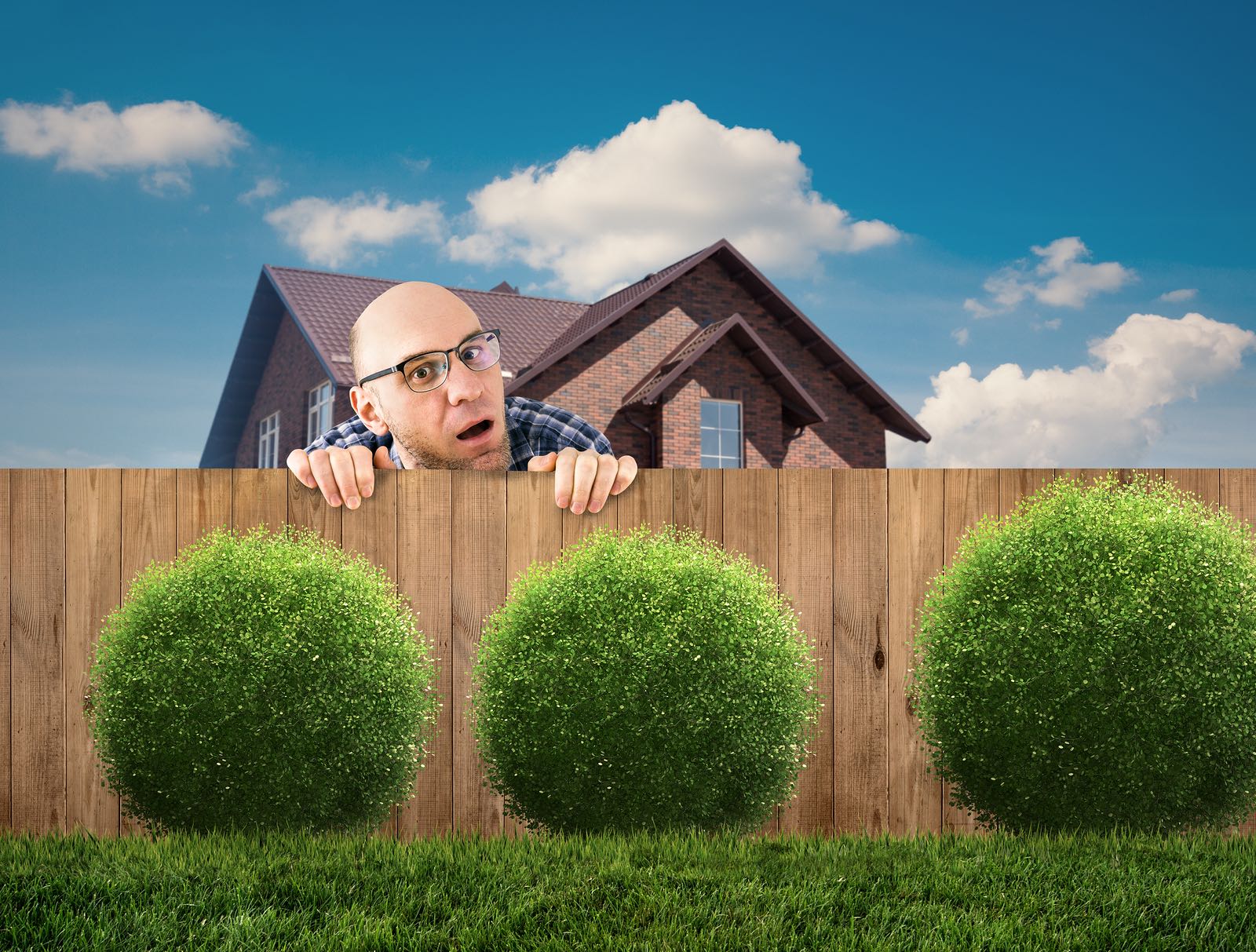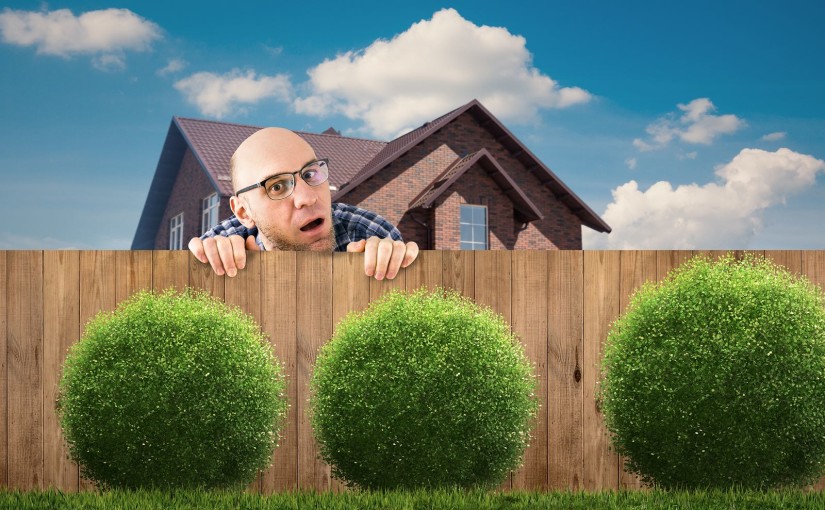
In an ideal world, nothing external will influence your home’s value. As long as the market is on your side and you ensure that the place is in spick-and-span condition, you should not have any problem selling above or at the listing price- right?
Just do not forget about your neighbors….
One bad apple can make selling your house a struggle. In reality, there will always be the late-night partiers, the hoarders, the non-stop dog barkers and the just plain lousy, rude neighbors who can easily throw off a sale. According to the Appraisal Institute, they may even cause the value of your home to decrease by as much as 10 percent. If you have a neighbor living next door that fits one of the above descriptions, it could easily put a wrench in the house selling process.
Most neighborly disputes do not have a legal solution. Your best option: a smile, a diplomatic conversation and crossed fingers. At times the remedy, sadly, is decreasing your asking price and getting the heck out of Dodge.
And once in a while, the law does have your back.
Here are 3 common kinds of horrible neighbors-and advice on how you should handle them when your home is for sale.
The neighbor who wants your home
If your neighbors want to expand their property, they may have an eye on your home and no fears about shooing-off the competitors. For example, a vindictive neighbor who is desperate to purchase your home, may conveniently make himself/herself available to answer questions every time somebody pulls in to see the house.
How to deal? You can sell your house to the neighbors, but if they are expecting a neighborly discount (or they’ve turned you off with their bad behavior), you should sit them down for an open conversation: They are not getting the home. If they continue to scare potential home buyers, you should consult an attorney. You might have a case to sue them for libel- but you should expect the road to success to be full of twists, turns and unexpected detours.
The neighbor with a bad attitude
Maybe your neighbor is just a miserable guy, keen to make you, your family and the entire block equally miserable.
These less than savory attributes can make your house a nightmare to sell. Eventually, you might be forced to sell the house to an out of state buyer who will not know why you’re selling and isn’t bothered to speak to anybody about the neighborhood.
However, hoping that your buyer does not do due diligence might not be an option. You should work with the other residents of the neighborhood to solve the problems – they may be willing to band together and approach your miserable neighbor.
Whatever you do, ensure that you consult your attorney and agent about what you should disclose, particularly if you are dealing with potentially criminal elements. This depends on your state, and your realtor can give you more details.
The neighbor who trashes the neighborhood
Not everybody keeps their home perfectly clean, and you would be surprised if you expect as much- even from the good neighbors. But when disheveled becomes unmitigated disaster, selling your house can be quite a nightmare.
For example, you might share a driveway with a neighbor who does not make any effort to make the path look acceptable, has dead, rusting vehicles in their front yard, or a no trespassing sign that states that their house is protected by Smith & Wesson.
However, there is nothing legally-objectionable here. You may have a case with the vehicles or the other junk on the neighbor’s property—take photographs, document the state, and get in touch with the local or municipal authorities. Nonetheless everything else is just bad manners.
Unfortunately, many neighbor disagreements are quite difficult to solve in the legal system. Nearly all lawsuits involve the payment of money damages for tangible harm. Many neighbor disputes aren’t about cash, but trying to correct the behavior.
If you are dealing with a real problem house – such as a home filled with fraternity brothers who like to party 24 /7, or worse, your first step should be talking with the homeowners association and the neighbors, if possible. The association may offer to clean up debris, mow the lawn, or take other essential action under their bylaws.
